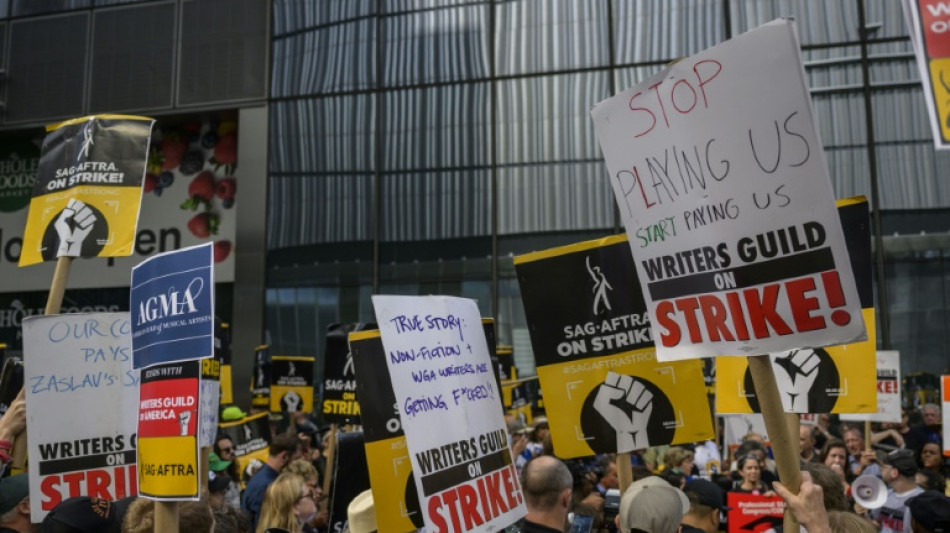
Hollywood CEOs, striking writers at impasse after new talks

The latest meeting between Hollywood's striking screenwriters and top executives from Disney, Universal, Warner Bros. and Netflix ended in an impasse, the writers' union has said.
After more than three months of silence from studios since the strike kicked off in May, negotiations with the Writers Guild of America resumed earlier this month.
But talks remain deadlocked after an offer from studios to raise wages, improve work conditions and curb -- to an extent -- the use of artificial intelligence was rebuffed in the meeting late Tuesday.
"We were met with a lecture about how good their single and only counteroffer was," the WGA negotiating committee said in a statement about the talks.
"This wasn't a meeting to make a deal. This was a meeting to get us to cave," the committee said in a statement.
The writers' strike, which since mid-July has been accompanied by an actors' strike, has brought much of the film and television industry to a standstill, costing Hollywood millions of dollars a day.
The presence at Tuesday's meeting of top CEOs including Disney's Bob Iger and Netflix's Ted Sarandos, along with Donna Langley, chairman of Universal and Warner Bros.'s David Zaslav, wasn't enough to make a deal happen.
"We have come to the table with an offer that meets the priority concerns the writers have expressed," said Carol Lombardini, president of the Alliance of Motion Picture and Television Producers.
Lombardini said that the studios and streaming platforms proposed a reasonable offer, including a 13 percent increase in the minimum wage for writers over three years.
They also promised to share with the WGA the number of hours shows are being watched on streaming platforms -- figures that are currently confidential.
Studios have said they will be more transparent on streaming's audience numbers, but are not making a concrete offer to revise residual payments.
As streaming has become more popular, residuals for shows on those platforms have lagged behind traditional television residuals -- a key sticking point in negotiations.
The offer on AI consisted of allowing writers to rework scripts originally created by AI, while being credited as the sole author -- and thus eligible to be paid as such.
But studios have remained silent on the possibility of training AI on existing scripts -- a red line for the WGA.
The WGA countered that the studios' offer contained "limitations and loopholes and omissions" that "failed to sufficiently protect writers from the existential threats that caused us to strike in the first place."
"We will see you all out on the picket lines and let the companies continue to see what labor power looks like," the writers said.
E.Cox--TNT